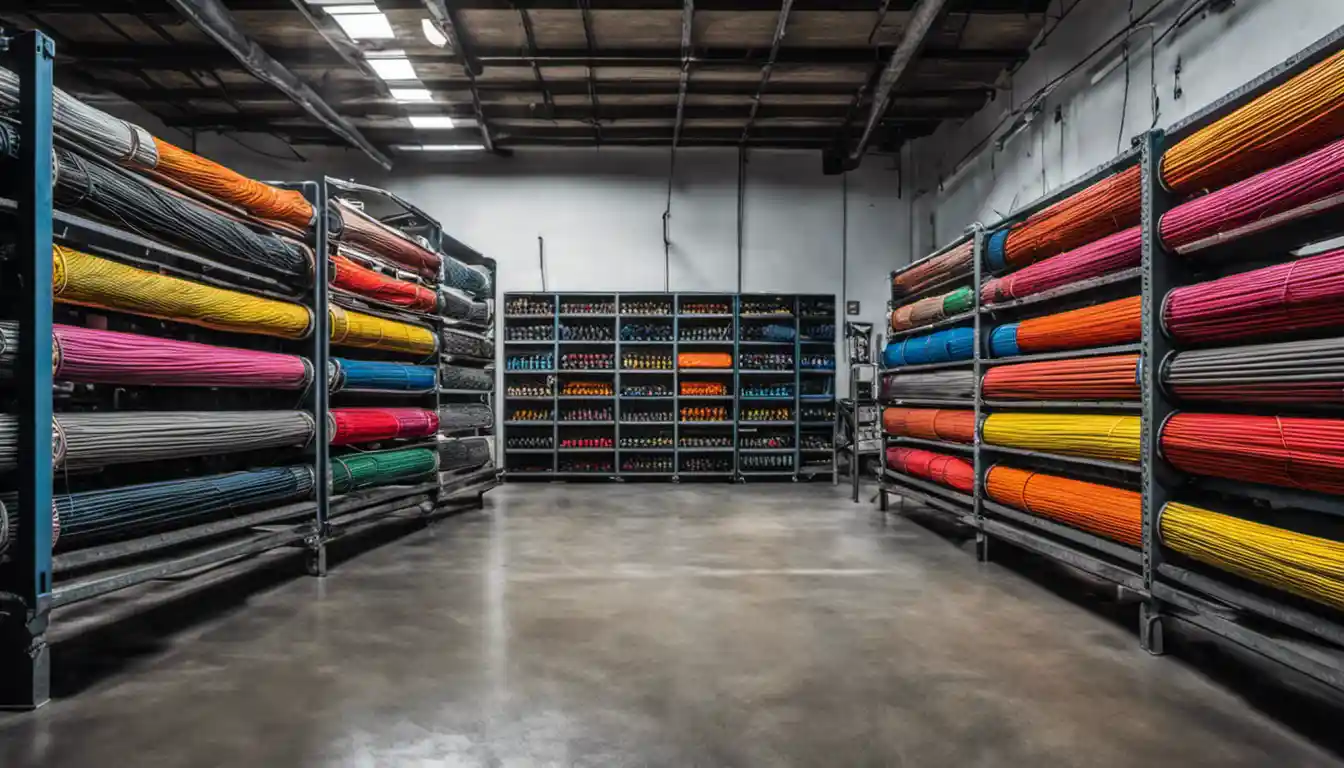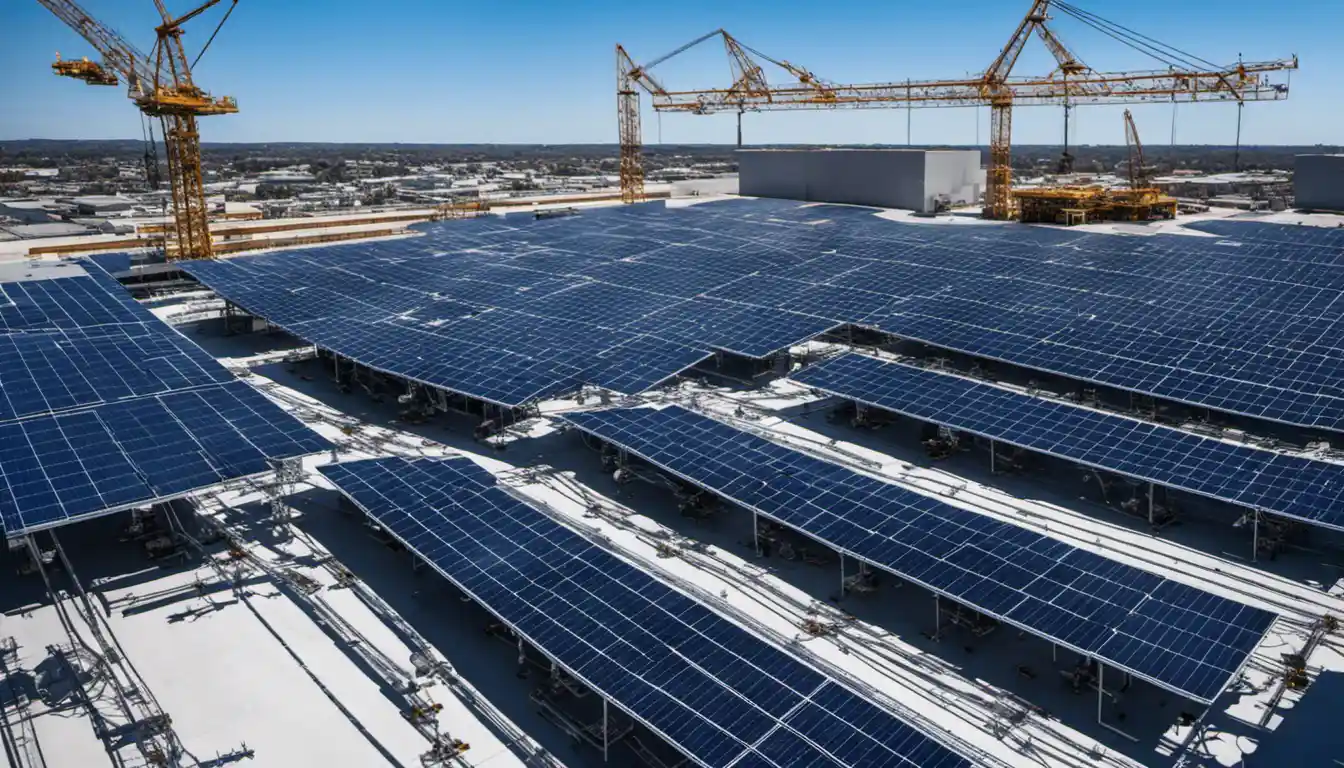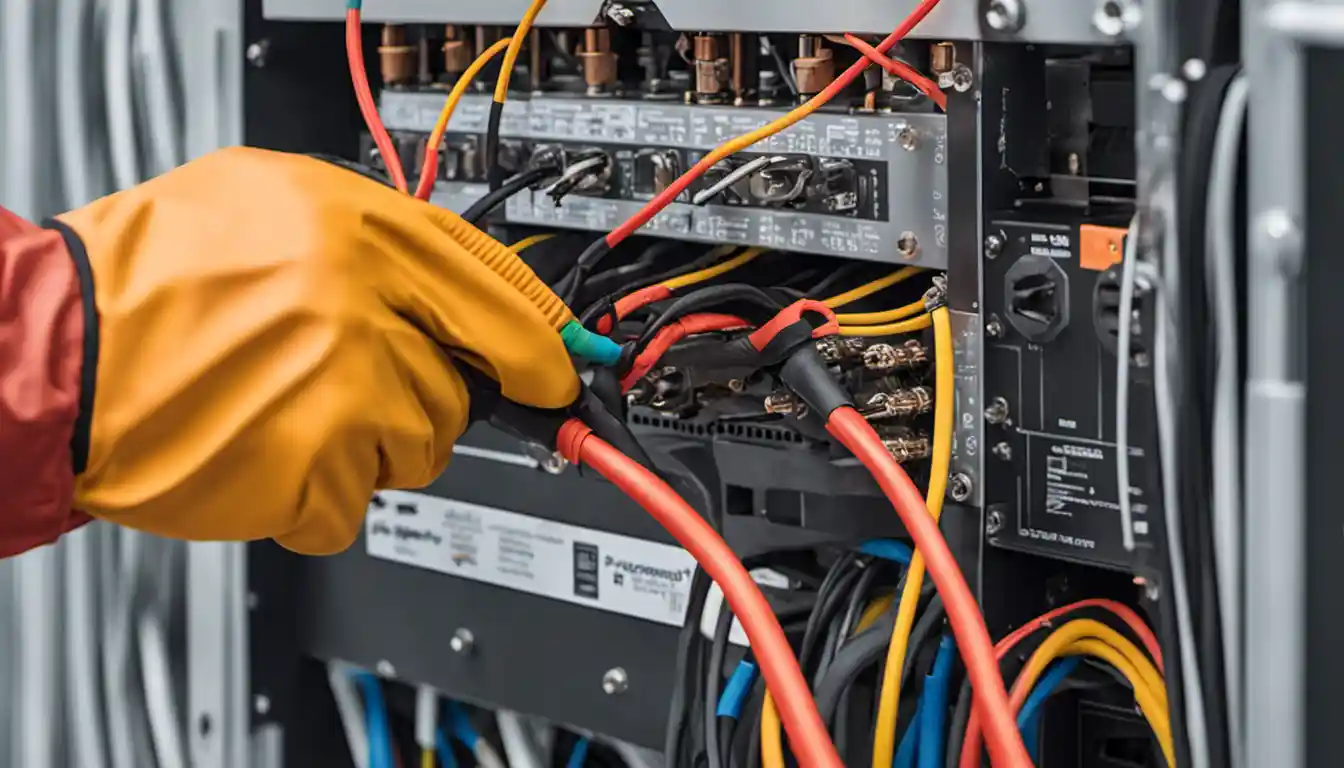What is Solar Panel Mounting and Racking?
Mounting solar panels refers to the process of installing solar energy systems onto a structure such as a building or ground mount. The procedure usually involves securing the panels with a racking system on the rooftop or ground and connecting the system to the power grid. Factors like direction, angle, and location are critical for maximizing energy production.
Solar Panel Mounting Components
Let’s delve into the world of solar panel mounting parts. These are the backbones of your solar setup, so listen up!
See also: Solar Panel Stands (Making + Fixing)
Roof Attachments
Think of roof attachments as nails or screws. They offer a secure hold on your panels, and you need them strong because they’ll face everything Mother Nature dishes up, be it gale winds or winter snow.
See also: Solar Panel Post Mount (Fixing Options Guide)
Mounting Rails
Imagine hanging a picture – that wire on the back isn’t much different from mounting rails. These handy components offer a ridge upon which your solar panels rest. They come in various materials, each offering different sturdiness levels.
See also: Solar Panel Roof Mounts (Types – Fixing – Setup)
Module Clamps
Seal the deal with module clamps. Clamp your solar panels on the mounting rails to create a single, solid system that can endure the harshest weather conditions.
See also: Ground Mount Solar Panels (Advantages)
Solar Installation Planning & Safety
“An ounce of prevention is worth a pound of cure,” they say. That’s certainly true when it comes to mounting solar panels, so let’s cover planning and safety tips:
See also: Install Solar Panels On A Roof Without Drilling (Do This!)
Materials and Equipment to Purchase

From wiring to mounting materials, ensure you have the necessary equipment on hand. Check twice, install once – that’s the rule of thumb!
See also: Ground Mounted Solar Panels vs Roof: The Ultimate Comparison Guide for Homeowners
Unboxing and Safety Considerations
Be it protective equipment, electrical safety, or heavy lifting, acing the unboxing choreography takes time, and safety should never be taken lightly. Remember, it’s not just about how to mount solar panels, but how to mount solar panels safely.
See also: Mounting Solar Panels on Shingle Roof: A Comprehensive Guide for Homeowners
A Detailed Guide on Installing the Solar Panels
From marking roof rafters to finally mounting the panels, every step is crucial to ensure your new solar system ticks all the right boxes.
See also: Solar Panels Vertical Or Horizontal (Which Orientation Is Best!)
Step 1: Marking Roof Rafters
As simple as it may seem, marking roof rafters is an essential step. It involves locations, echo location, exploratory drilling, and then marking rafters with chalk lines.
See also: Solar panel mounting Roof + Ground (RV – Houses – Boats)
Step 2: Install Roof Attachments
This step is where things start looking up (literally). Keep in mind the considerations for attachment types, depending on your roof type!
See also: How To Lift Solar Panels Onto Roof
Step 3: Install Racking Rails
Once the attachments are secure, it’s time to install your racking rails, the unsung heroes that’ll bear the weight of your solar panels.
See also: Mounting Solar Panels With VHB Tape (10 Steps)
Step 4: Getting Panels On Your Roof

This step calls for diverse lifting methods, because those solar panels aren’t the lightest things around!
See also: Mounting Solar Panel to Roof Rack (Under Rack + Slideout)
Step 5: Mounting Panels
The final step, where you finally get to see your plan coming together. When done right, this feels just as majestic as it sounds!
See also: Solar Panels on Metal Roof (Advantages + Disadvantages)
Ground Mounting
See also: Solar Panels for Flat Roofs (Installation Options)
Step 1: Creating a Solid Foundation
Even the best-laid plan needs a sturdy foundation. Pouring concrete and setting piers will ensure your solar panels won’t budge, come what may.
See also: Solar Panel Carport (Costs + Installation)
Step 2: Installing Racking Rails
Just as we do on a rooftop install, setting up racking rails correctly on the ground is a crucial step in mounting solar panels.
See also: Quick Release Solar Panel Mounts (Handy Systems)
Step 3: Mounting Panels
And finally, with a strong foundation and racking rails in place, you’re all set for mounting solar panels just the way you wanted.
See also: Benefits of Solar Panels on Roof: Harnessing the Sun for Maximum Efficiency
Wiring and Electrical Aspects

From managing wiring to mounting your inverter, it’s the behind-the-scenes action that brings the “electricity” in “solar electricity”.
See also: Solar Panel Wall Mount: The Ultimate Guide for Installation and Usage
Solar Battery Installation
If you’re adding battery storage to your solar installation, safety becomes doubly important. From handling batteries to wiring, every step needs your careful attention.
See also: How to Build a Solar Panel Stand: A Comprehensive DIY Guide
Key Considerations When Choosing the Best Solar Mounts for Your Project
Which is better: roof-mounted solar panels or ground-mounted solar panels? This discussion aims to shed some light on this common question and guide decision making.
A Note on Electrical Grounding
When it comes to longevity and safety, there is no overstating the importance of proper electrical grounding.
Tips for both Professional and DIY Solar Mount Installation
Whether you’re looking to hire a professional installer or ready to put on your DIY hat, this section offers tips and tricks that everyone can use.
Where to Buy Solar Panel Mounts
Now that we’ve covered all you need to know, the only thing standing between you and your sustainable, solar-powered future is figuring out where to get your equipment!
How Much Does it Cost to Mount Solar Panels?
Let’s talk about the elephant in the room – the cost. This section demystifies what goes into the cost of mounting solar panels. And who knows? You might find it’s a lot more feasible than you think!
Throughout this whirlwind tour of mounting solar panels, consider the best angle for your solar panels and you may want to explore the appropriate spacing gaps between each panel. Don’t forget, the kind of stands you use to mount your solar panel could also make a significant difference to the complete setup.
Remember, each solar installation is unique. Yours will be a story of patience, learning, and ultimately, a rewarding journey towards a brighter, more sustainable future!



